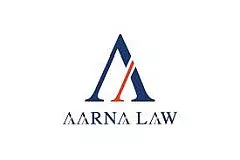- within Litigation and Mediation & Arbitration topic(s)
- with readers working within the Automotive, Securities & Investment and Law Firm industries
- within Family and Matrimonial, Transport and Intellectual Property topic(s)
- with Senior Company Executives and HR
Factual Background:
In 2015, members of the Gupta family, including Pawan Gupta and Kamal Gupta, reached an oral family settlement, which was later formalized in a written Memorandum of Understanding/Family Settlement Deed (MoU/FSD) in 2019. Notably, Rahul Gupta, the son of Kamal Gupta, was not a signatory to this MoU/FSD. Based on the terms of this settlement, Pawan Gupta initiated arbitration proceedings and filed an application under Section 11(6) of the Arbitration and Conciliation Act, 1996 ("Act"), seeking the appointment of an arbitrator. Alongside this, Pawan Gupta and another party also filed a petition under Section 9 of the Act, which empowers courts to grant interim relief – such as asset protection or restrictions on property transfer, either before or during arbitration. Rahul Gupta attempted to intervene in the Section 9 proceedings but was unsuccessful. On March 22, 2024, the Court appointed a sole arbitrator and accordingly disposed of the Section 11(6) application, rendering itself functus officio, i.e., without further authority in the matter. Rahul Gupta's intervention request, as a non-signatory to the MoU/FSD, was rejected by the Court.
What Happened Next?
Rahul Gupta, along with certain companies, sought to intervene in the arbitration proceedings, claiming that the property-related disputes under arbitration had a direct bearing on their interests. They argued for the right to participate in the proceedings and filed applications seeking access to key documents, including pleadings, interim and final orders, and arbitral awards. Additionally, they requested that the order appointing the sole arbitrator be recalled, despite not being signatories to the MoU/FSD.
Judge's Decision at High Court level:
The Judge allowed Rahul Gupta and the other non-signatories to sit in and observe arbitration proceedings, either personally or through a lawyer.
This was unusual, because arbitration is normally strictly between the signatories to the arbitration agreement which subsequently led to Pawan Gupta and Kamal Gupta challenging the decision in Supreme court.
Issues Raised by the Supreme Court
The Bench (Justices P.S. Narasimha & A.S. Chandurkar) framed two questions:
- Can a non-signatory remain present in arbitration proceedings?
- After appointing an arbitrator under Section 11(6), can the Court give further directions in disposed proceedings?
After deliberation, the court answered both questions in the negative.
Supreme Court's Reasoning
1. Rahul Gupta's Reasoning:
Rahul Gupta and his companies said they were worried because the signatories Pawan Gupta and Kamal Gupta were allegedly dealing with property that was part of a family undertaking. Even if this concern was genuine (bona fide), the Court said it still doesn't justify allowing them to sit in arbitration proceedings.
2. No role for "observers" in arbitration:
The Arbitration law (Arbitration & Conciliation Act, 1996) does not recognize the concept of observers. The earlier Judge himself noted this in his order, yet still allowed Rahul Gupta and others to attend.
"It must be stated that the learned Judge was cognizant of the fact that the Act does not envisage an observer in arbitral proceedings as can be seen from the observations in paragraph 19 of the order dated 07.08.2024. Despite that, such permission has been granted."
Furthermore, Supreme Court said even well-meaning directions must have statutory backing. Since no provision allows outsiders to attend arbitration, the Judge's order was wrong.
3. Court had no power after arbitrator appointment:
Once the arbitrator was appointed under Section 11(6), the Court became functus officio which means that its job was over. It had no jurisdiction to entertain fresh applications like Rahul Gupta's request. Section 5 of the Act (minimal judicial interference) further reinforces that courts cannot intervene unless expressly allowed.
4. Violation of confidentiality:
Section 42A of the Act makes arbitral proceedings confidential. Letting outsiders her non-signatories to be present breached confidentiality. So, the order permitting this was directly against the law.
5. Overreach of Law:
Since the matter under Section 11(6) was already disposed of, Rahul Gupta's new applications were an attempt to reopen closed proceedings. The Court said this was misconceived and amounted to an abuse of process of law.
In essence, the Supreme Court held that arbitration is strictly between signatories, courts cannot reopen proceedings after appointing an arbitrator, and confidentiality rules forbid outsiders from attending.
What the Court Looked at?
The Supreme Court analysed Sections 5, 11(6), and 42A of the Arbitration & Conciliation Act, 1996, and applied principles from earlier Constitution Bench judgments. On evaluation it can be observed that Section 5 lays down the provision for minimal court interference and that it has two sides (positive & negative):
Positive: Courts can step in only where the Arbitration Act expressly allows it (like appointment of arbitrators under Section 11, interim relief under Section 9, etc.).
Negative: Courts are barred from interfering in arbitration matters where the tribunal itself has exclusive jurisdiction.
The whole purpose is to minimize judicial interference, following the UNCITRAL Model Law.
Arbitration Act in itself is a "Self-Contained Code" and the Constitution Bench said the Arbitration Act is a complete and exhaustive code for everything related to arbitration that includes:
- appointment of arbitrators,
- conduct of proceedings,
- making and challenging awards,
- enforcement of awards.
When a law is a self-contained code, you cannot bring in general legal provisions (like Section 151 CPC) unless the Act itself allows. In short, only what the Arbitration Act expressly permits is allowed and nothing else.
Rahul Gupta's request to "sit in" the arbitration went beyond Section 11(6). Using Section 151 CPC to justify this was not permissible. Additionally, like said earlier it also clashed with Section 42A (confidentiality) because outsiders observing arbitration would breach confidentiality.
The Final Decision
Supreme Court's Order:
The order dated 12.11.2024 which allowed Rahul Gupta & companies to attend arbitration and gave other directions was set aside. Only the signatory parties i.e., Pawan Gupta & Kamal Gupta are free to pursue their rights before the arbitrator. The respondents Rahul Gupta & non-signatory companies were directed to pay ₹3,00,000 as costs to the Supreme Court Advocates-on-Record Association within two weeks.
Conclusion
The Supreme Court's decision in Kamal Gupta & Anr. v. L.R. Builders Pvt. Ltd. & Anr. 2025 SCC OnLine SC 1691 highlights two key principles of arbitration law in India: party autonomy and minimal judicial intervention. The Court made it clear that non-signatories cannot be permitted to attend arbitral proceedings, stressing that arbitration is both confidential and contractual, meant only for those who have agreed to it.
The Court also clarified that once an arbitrator is appointed under Section 11(6), the court's role comes to an end, and it cannot issue further directions. When non-parties tried to reopen those proceedings, their actions were treated as a misuse of the process. The judgment further emphasized that the Arbitration Act is a complete legal framework in itself, and courts cannot rely on general provisions from the Civil Procedure Code, such as Section 151, to extend their powers beyond what the Act specifically allows.
The content of this article is intended to provide a general guide to the subject matter. Specialist advice should be sought about your specific circumstances.


